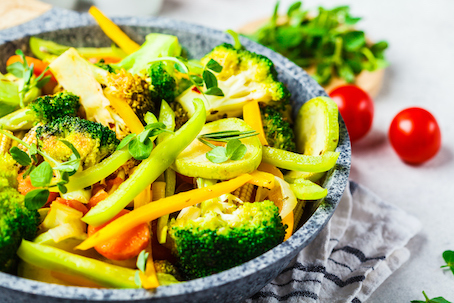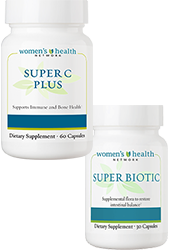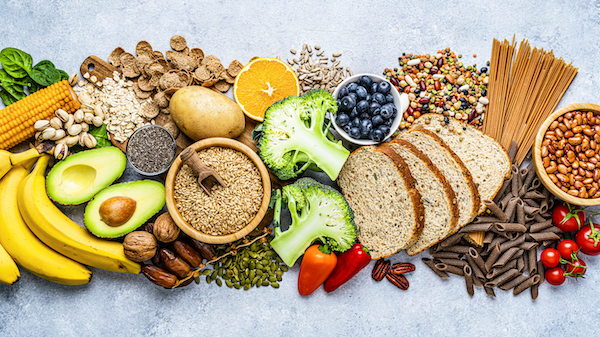By WHN Editors
Most of us don’t give our lungs much thought — until something goes wrong. But if Covid-19 has taught us anything, it’s that we need to stop leaving lung and respiratory health in limbo and start making healthy breathing passageways a priority.

There’s already strong evidence that good lung function prior to Covid-19 infection predicts a good outcome — and the reverse is true too. Why? Because lung function is so closely tied to our immune resilience.
The lungs perform multiple roles in our immune system. Perhaps most importantly, when we breathe in pollutants and infection-causing microbes, tiny hair-like projections that line the lungs, called cilia, trap and move these toxins up and out of the airways, helping to protect our health.
Normally this system works just about perfectly. However, living and breathing in our modern world brings with it constant exposure to everything from cigarette smoke to industrial air pollution to allergens. These toxins can damage cilia and other immune cells in the lungs, dampening their ability to function as intended.
And this is where food comes in. Your lungs need certain nutrients for repair and optimal function, and it’s up to you to give them the support they require.
So what should you eat? Here are seven research-backed foods that help make a difference in supporting healthy lungs.

Walnuts
Omega-3 fatty acids are essential for lung health, and walnuts are a rich source for these healthy fats. Omega-3s help to quiet inflammation in the lungs and support respiratory health at the cellular level. Recent research points to Omega-3s’ role in improving lung function and protecting against lung and respiratory infections and even asthma.
Aim to add a handful of walnuts to your daily diet. Other sources of Omega-3s include salmon, sardines and flaxseed. Taking a high quality Omega-3 supplement can fill in dietary gaps and provide a steady supply of O-3s.
Tomatoes
According to researchers from Johns Hopkins Bloomberg School of Public Health, eating two or more tomatoes every day supports healthy lung function as we age. Adults in their study with the highest tomato consumption had slower declines in lung function over a 10-year span compared to those who ate less than one tomato — even among former smokers! Tomatoes’ benefits appear to come from their high level of lycopene, a powerful antioxidant that helps to protect and repair cells from free radical damage.
Ginger
Ginger is an ancient remedy for lung health revered for its ability to help break down excess mucus in the lungs — making it easier for cilia to do their job of expelling toxins. (Cilia need mucus to expel toxins — that’s what triggers an ordinary cough. But excess mucus can overwhelm them.) Ginger’s anti-inflammatory effects also help to improve circulation in the lungs.
Apples
Apples contain a variety of phytochemicals, including the powerful antioxidant quercetin to help protect against the damaging effects of environmental pollutants. Eating five or more apples per week may be the ideal amount for supporting healthy lung function, say British researchers. There’s also reason to follow that old adage of an apple a day — the famous Nurses’ Health Study found that women who ate one apple every day had a reduced risk for lung cancer.

Broccoli
Broccoli is rich in sulforaphane, a natural compound that flips the “on switch” for a gene that helps protect lung cells from damaging toxins. Studies also show that sulforaphane supports the ability of immune cells lining the lungs to fight off infections, especially in people with COPD.
Cayenne pepper
Capsaicin, the pungent compound in chili peppers, is powerful medicine for your lungs, helping with everything from breaking up and moving congested mucus to possibly slowing the spread of lung cancer. Capsaicin also supports your immune system in its job of warding off respiratory infections. Why not give your summer salads a spicy health kick with a sprinkling of dried chili flakes or chopped fresh chili peppers?

Green tea
Green tea is packed with antioxidants that can help reduce inflammation in the lungs, including quercetin and epigallocatechin-3-gallate (EGCG). And here’s a big bonus — by drinking green tea, you are also increasing your water intake. Lungs are 80% water so you want to stay well hydrated to keep your lungs functioning at their best. Healthy lung tip: Add a squeeze of lemon to your green tea. Lemon is a natural expectorant to keep lungs clear.
I hope this list helps you breathe a little easier! There are so many ways you can support your lung health, and it can start just by choosing a few additional healthy foods.
| Shop Our Support |











